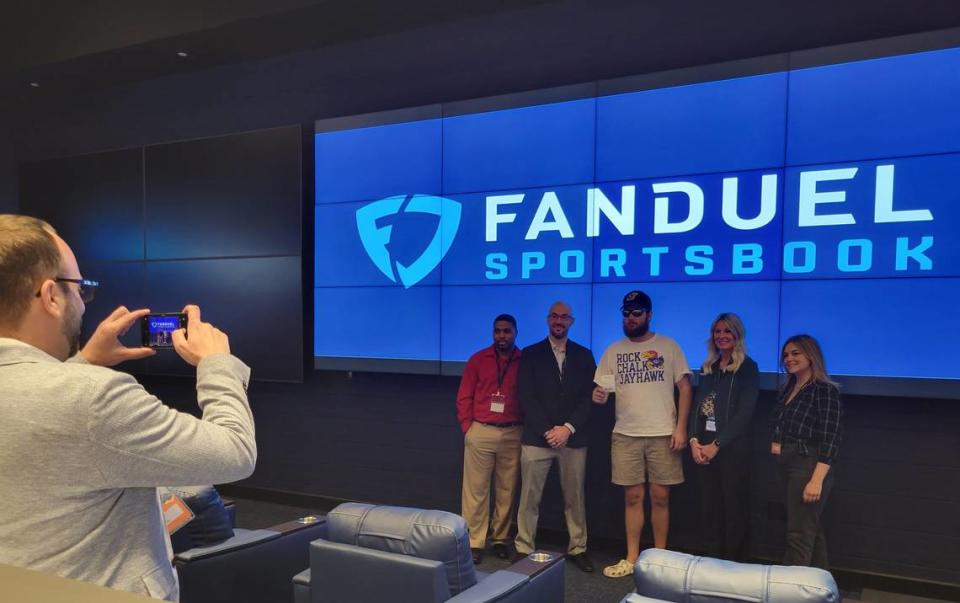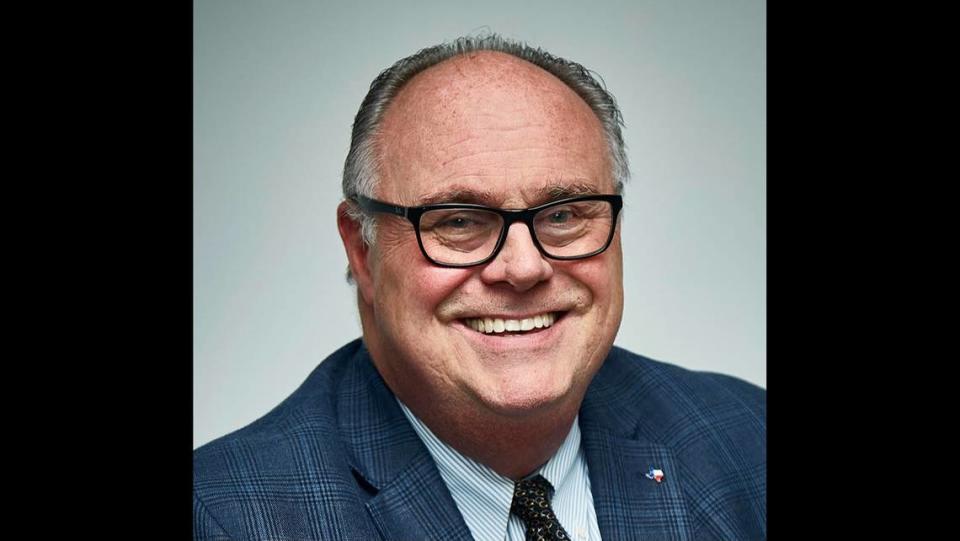Mark Davis: Texas doesn’t need casinos. And could online sports betting be just as bad? | Opinion
As the Legislature churns through the 2023 session, there are two ballot initiatives that may see the light of day in November, on a subject that has historically been dead on arrival.
Casino gambling has been one of those perennial issues that rears its head during legislative years, usually to be slapped down by the political reality that most Texans have opposed it. That opposition may have melted. Today’s voters might actually want to save gamblers the drive to Oklahoma or the plane ticket to Las Vegas.
That referendum may be joined by another question, seeking approval for the legalization of online sports betting via apps like Draft Kings and FanDuel, legal in roughly half the states.
I’ve traded thoughts with some lawmakers on these matters, comparing their views to my outright opposition to casinos and tenuous openness to online sports betting. I know the Oklahoma casino parking lots are filled with Texas plates. I know the Oklahoma casinos are filled with Texans. I know there could be some taxpayer benefit to building those high-end destination gaming venues across our state, including here in North Texas. I just don’t care.
I’m not anti-gambling. But with mounting evidence of a society slipping farther into dysfunction, I’m in no mood to see casino doors flung open to countless people primed to make bad decisions.
Casinos bring a certain amount of criminal activity. There is debate over how much, and frankly, I believe some of it is overstated. But even if it is, why invite more social ills, including the gambling addictions sure to sprout inside those ornate walls?
If some of the casino negatives are exaggerated, the positives surely are, too. If these referendums happen, get ready for a barrage of gaming company ad campaigns promising a wonderland of job creation and cascades of tax revenue. Sen. Brian Birdwell, R-Granbury, told me that the argument for broad benefit across Texas is simply not made: “The profits are privatized, and the baggage becomes an encumbrance to the state.”
That baggage comes not just in the form of crime, but of the wreckage that stems from disastrous wagers and addicted gamblers exacting the toll of their habits on their families and on our social structure. I want no part of it.

But are the various online sports betting apps less perilous? Rep. Jeff Leach, R-Plano, says so, painting the benefits of his bill that would allow voters to legalize them. Unlike casinos, he told me, clearing a path for betting apps is not an increase in gambling but rather an acknowledgment of billions of dollars in bets Texans are already making.
Legitimizing the online sports wagers, he says, would offer protections to bettors who are currently operating through risky offshore accounts, allowing them to come out of the shadows with benefits to the entire state. Estimating 2 million bets at $9 billion per year, Leach observes that those placing such bets “are criminals under current Texas law.”
Leach says his bill would allow online wagers to help resolve a pervasive Texas complaint: “98 percent of that revenue will go to property tax relief,” he told me, with the remaining 2% funding programs to address problem gaming.
Gone are the tribalized days when Democrats were generally open to legalized gambling while most Republicans reliably opposed it. In the House, as Leach works for his online bill, Republican John Kuempel of Seguin is carrying the measure for the destination casinos.
For his part, Rep. Matt Shaheen, R-Plano, wants no part of either one, opposing not just the expanded gambling but the ballot initiatives themselves. Online wagering is even more onerous, he says, placing opportunities for harmful consequences into countless hands with no need to drive to a destination.
But why not let people vote? “These casino and online sports betting companies are going to flood the airwaves,” he told me. “And there’s not going to be a dialogue about the negative impact — domestic violence, poverty, homelessness, those types of things.”
Estimates of the downsides of gambling are an inexact exercise, but I’m sufficiently interested in stemming those ills that I will remain opposed to casinos, and my ambivalence to the online measure may drift into opposition as well. But as I travel my journey, my inclination is to allow others to have a voice. The ballot measures will indeed spark ad wars, but I expect anti-gambling factions will at least show up to meet the huge budgets of the gaming companies.
That entire exercise sounds like free speech. I have no idea how either measure would fare, but I don’t fear giving the choice to voters.
Mark Davis hosts a morning radio show in Dallas-Fort Worth on 660-AM and at 660amtheanswer.com. Follow him on Twitter: @markdavis.


